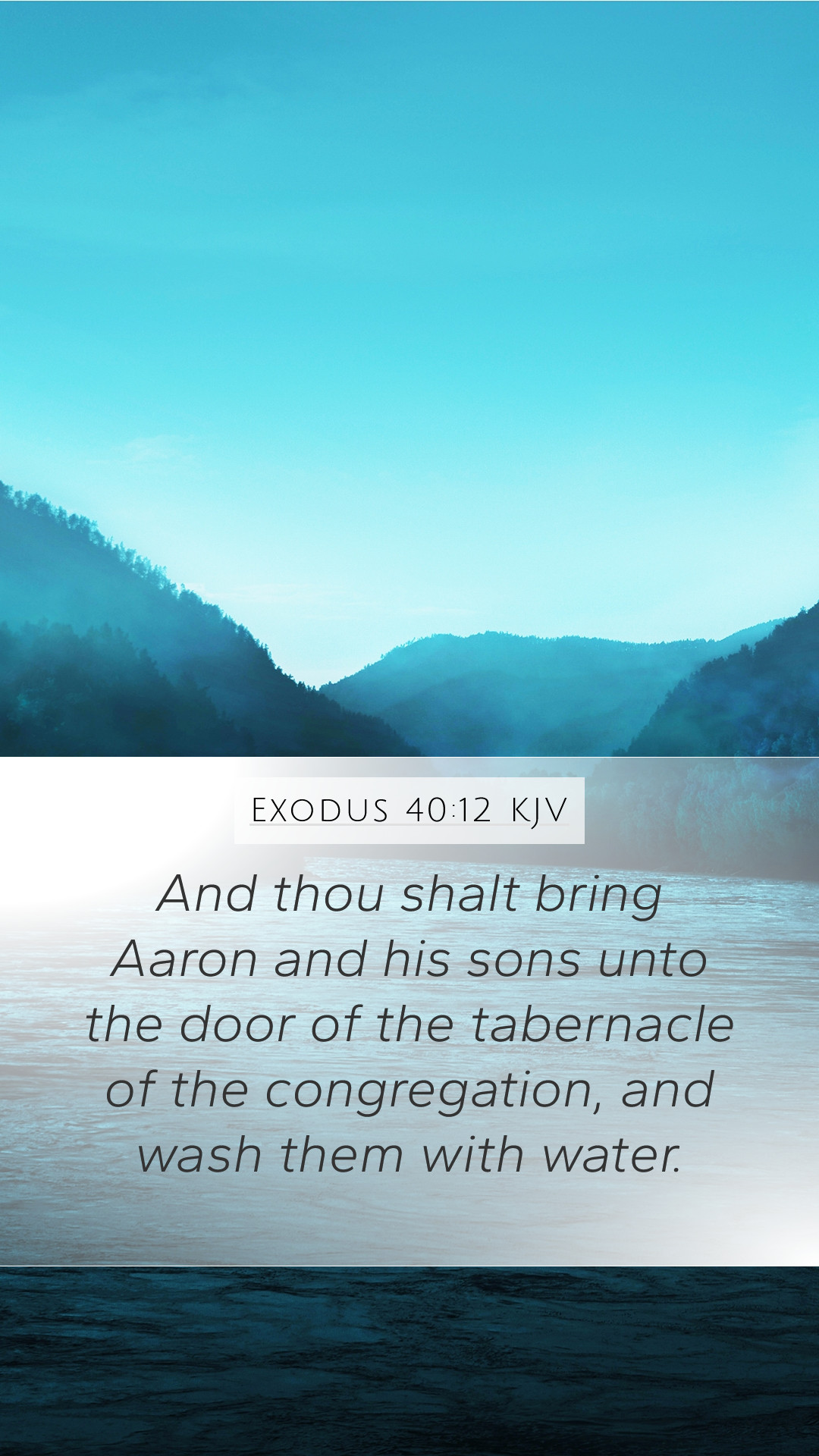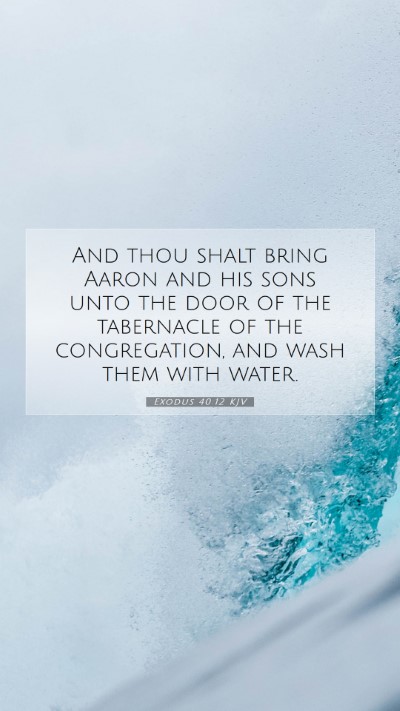Exploring Exodus 40:12 - Understanding the Meaning of This Bible Verse
Exodus 40:12 states: "Then you shall bring Aaron and his sons to the entrance of the tent of meeting and wash them with water." This verse is rich in meaning and significance, and it provides deep insights into the themes of holiness, preparation, and the priestly duties in ancient Israel. Below, we explore the interpretation and application of this verse through various lenses.
Context and Overview
The book of Exodus covers the Israelites' liberation from Egyptian bondage, their journey through the wilderness, and the establishment of God’s covenant with them. Exodus 40 concludes with God's instructions regarding the tabernacle and the consecration of the priests. Understanding this verse requires a grasp of its historical and spiritual context.
Historical Context
After the Israelites escaped Egypt, God commanded Moses to build a sanctuary where He could dwell among his people. Exodus 40 details the final arrangements for the tabernacle, where the presence of God would reside. The washing of Aaron and his sons was necessary for their consecration and prepared them for their roles as priests.
Commentary Insights
-
Matthew Henry:
Henry emphasizes the importance of preparation and cleansing before approaching God. He notes that washing symbolizes purification and the need for the priests to be holy as they approach the altar.
-
Albert Barnes:
Barnes discusses the ceremonial aspects of the washing, pointing out that it signifies the need for spiritual cleanliness. He relates this to the New Testament concept of baptism and spiritual renewal through Christ.
-
Adam Clarke:
Clarke highlights the significance of Aaron's consecration as the high priest and the acknowledgment of God's order in establishing the priesthood. He suggests that this act of washing prepares them for their sacred duties, denoting a transition into divine service.
Theological Significance
This verse not only provides practical instructions for the priests but also embodies the theological principles of preparation before service to God. The act of washing reflects the spiritual truth that one must be made clean to serve rightly in God’s presence.
Purity and Holiness
The necessity of washing signifies the overarching theme of holiness in Scripture. In the life of believers today, purity remains paramount as one engages in worship and service. This concept extends to understanding how the New Testament calls believers to live a life of holiness, as indicated in passages like 1 Peter 1:15-16.
Applications for Today
Understanding scripture requires not just knowledge but application in daily life. Exodus 40:12 teaches modern-day believers about the importance of spiritual preparation and cleansing. Here are some insights on how this verse can be applied:
- Engaging in regular personal cleansing through confession and repentance.
- Participating in community worship that emphasizes holiness and preparation.
- Recognizing the roles of spiritual leaders in the church and their need for purity and preparation.
- Encouraging personal Bible study lessons focused on the themes of purification and holiness.
- Using this verse as a guide in Bible study groups to discuss the significance of spiritual readiness.
Cross References
This verse relates to several other significant passages in the Bible that enhance understanding:
- Leviticus 8:6-7: Describes the consecration process of Aaron and his sons.
- Hebrews 10:22: Encourages believers to draw near with a true heart in full assurance of faith, having their hearts sprinkled clean.
- Psalms 51:2: David asks God to wash him thoroughly from his iniquity, reinforcing the need for spiritual cleanliness.
Conclusion
Exodus 40:12 presents a rich narrative of divine instruction and the necessity of purification before service. Understanding this verse not only involves a historical overview but also a spiritual application that resonates with the believer's life today. The call for holiness remains relevant, emphasizing the need for heartfelt preparation before approaching God. As believers engage with this verse, may they find insights that lead to deeper Bible study and a more profound walk with God.


